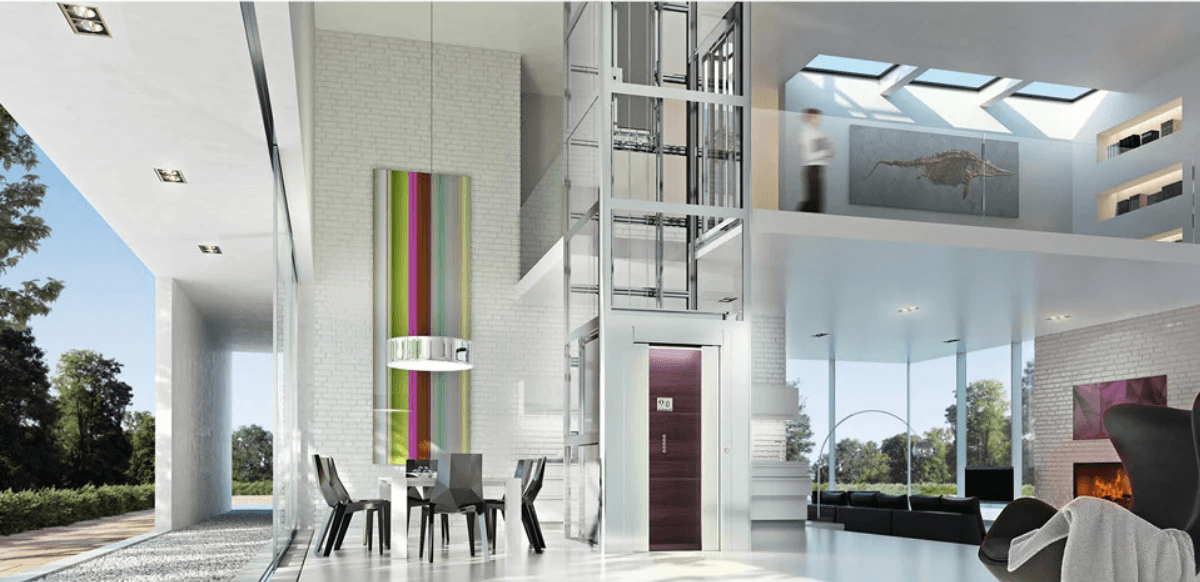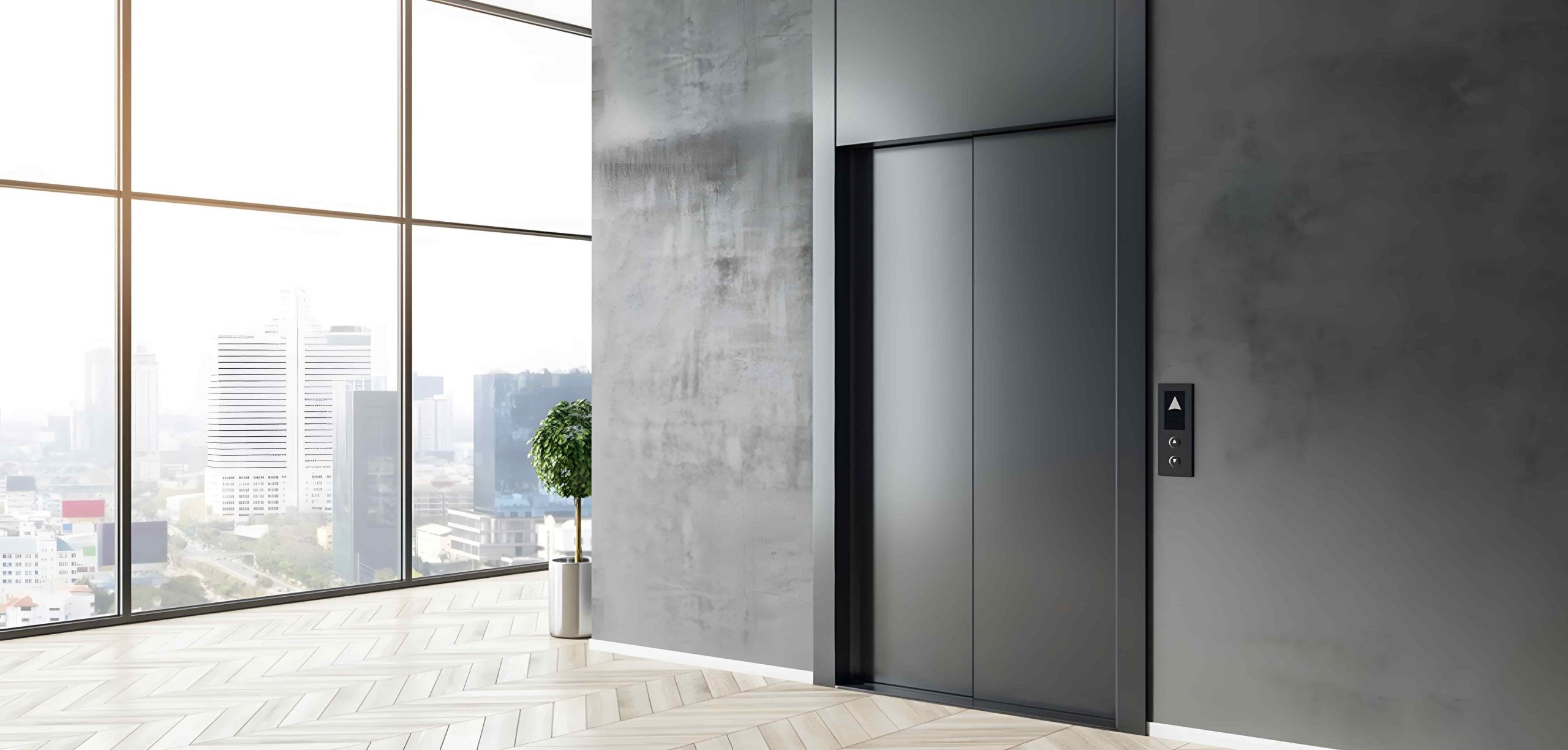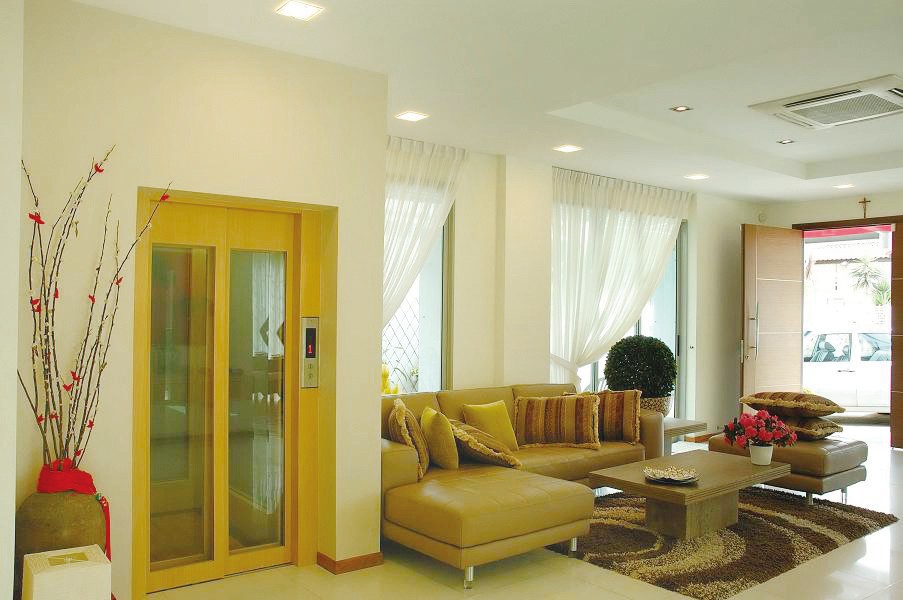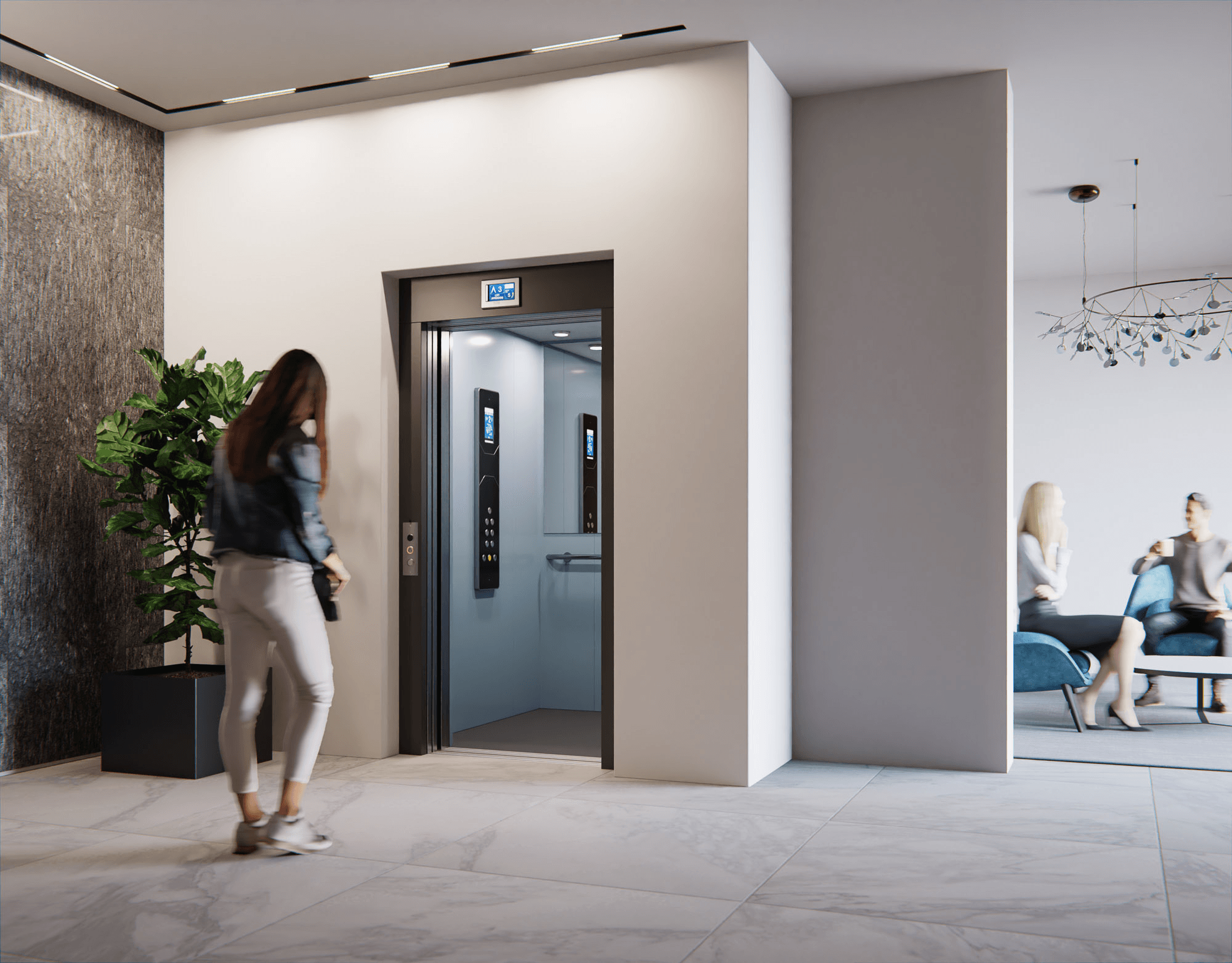Introduction

When it comes to adding convenience and accessibility to your home, residential elevators are a game-changer. Whether you're looking for a small elevator for your home or considering a larger elevator in house, understanding the different types of residential elevators is crucial. Factors such as space-saving solutions, design aesthetics, and practical uses must be considered when choosing the right elevator for your lifestyle. And of course, we can't forget about the cost - knowing how much does a small home elevator cost is essential in making an informed decision.
Understanding the Different Types of Residential Elevators
Residential elevators come in various types, each with its own unique features and benefits. From space-saving pneumatic vacuum elevators to traditional hydraulic and traction elevators, there's a wide range of options to choose from when it comes to finding the perfect small residential elevator for your home.
Factors to Consider When Choosing a Residential Elevator
When selecting a residential elevator, it's important to consider factors such as design aesthetics, accessibility and mobility needs, as well as installation and maintenance requirements. Each of these factors plays a crucial role in determining which type of elevator is best suited for your home.
The Cost of Residential Elevators
Understanding the cost associated with installing a residential elevator is key in making an informed decision. From budgeting and financing options to return on investment and cost-saving tips, knowing how much does a small home elevator cost will help you find the perfect elevator solution for your lifestyle.
Types of Residential Elevators

When it comes to choosing the right residential elevator for your home, it's important to understand the different types available. Hydraulic elevators are a popular choice for small residential spaces, offering a smooth and quiet ride. Traction elevators, on the other hand, use a system of ropes and pulleys to move the elevator car, making them ideal for larger homes. Pneumatic vacuum elevators are a modern and space-saving option that use air pressure to move the car up and down.
Hydraulic Elevators
Hydraulic elevators are known for their reliability and energy efficiency, making them a great choice for small residential spaces. They operate using a hydraulic piston that moves the elevator car up and down with ease. With their compact design and quiet operation, hydraulic elevators are an excellent option for homeowners looking to enhance accessibility in their homes.
Traction Elevators
Traction elevators utilize a system of ropes and counterweights to move the elevator car, making them well-suited for larger homes with multiple floors. This type of residential elevator offers a smooth and comfortable ride, along with excellent energy efficiency. Traction elevators also come in various designs and finishes, allowing homeowners to customize them according to their preferences.
Pneumatic Vacuum Elevators
Pneumatic vacuum elevators are an innovative choice for small residential spaces, as they require minimal construction work and can be installed in as little as one day. These sleek and modern elevators use air pressure to move the car up and down within a transparent tube, providing an elegant addition to any home's interior design. Pneumatic vacuum elevators also offer easy maintenance and low energy consumption.
Now that you have gained insight into the various types of residential elevators available on the market today, you can make an informed decision based on your specific needs and preferences.
Small Elevator for Home

When it comes to installing a small elevator in your home, space-saving solutions are crucial. Look for compact designs that can fit into tight spaces without sacrificing functionality. Whether it's a pneumatic vacuum elevator or a traction elevator, prioritize models that optimize space while still providing smooth and efficient vertical transportation.
Space-Saving Solutions
Consider installing a pneumatic vacuum elevator, which requires minimal space and can be fitted into existing homes without the need for major renovations. These sleek and modern elevators utilize air pressure to move smoothly between floors, making them an ideal space-saving solution for homes with limited square footage.
Features and Benefits
A small residential elevator offers numerous benefits beyond just saving space. It provides convenience for individuals with mobility challenges, enhances the overall accessibility of your home, and adds value to your property. Look for features like customizable interiors, energy-efficient operation, and smooth ride technology to maximize the benefits of having an elevator in your home.
Cost Considerations
When considering how much a small home elevator costs, it's important to factor in not just the initial purchase price but also installation and maintenance expenses. While the cost may vary depending on the type of elevator you choose, investing in a residential elevator is ultimately an investment in your comfort and convenience.
Elevator in House

When it comes to the design and aesthetics of an elevator in your house, you have plenty of options to choose from. Whether you prefer a sleek and modern look or a more traditional style, residential elevators can be customized to complement your home's interior design. From glass walls to custom finishes, there are endless possibilities for creating a stylish and functional addition to your house.
Design and Aesthetics
Residential elevators come in various designs, allowing homeowners to match the elevator's aesthetic with their home decor. Whether you want a minimalist look with clean lines or a more ornate design with decorative accents, there's an elevator style for every taste. Some models even offer customizable features like lighting and cabin size to further enhance the overall look and feel of the elevator.
Accessibility and Mobility
Apart from adding a touch of elegance to your home, having an elevator in your house also provides unparalleled accessibility and mobility benefits. It makes it easier for elderly family members or those with mobility challenges to move between floors without any hassle. Additionally, it eliminates the need for carrying heavy items up and down the stairs, making everyday tasks much more convenient.
Installation and Maintenance
Installing an elevator in your house is not as daunting as it may seem. With advancements in technology, many residential elevators are designed for easy installation with minimal disruption to your home. Once installed, routine maintenance is relatively straightforward, ensuring that your elevator operates smoothly for years to come without any major issues.
Residential Dumbwaiter

Dumbwaiters are a clever addition to any home, offering practical uses such as transporting groceries, laundry, or other items between floors without the hassle of carrying them yourself. Installation options for a small residential elevator like a dumbwaiter include retrofitting into existing homes or incorporating it into new construction. When it comes to cost and maintenance, dumbwaiters are generally more affordable than larger residential elevators and require minimal upkeep.
Practical Uses
A residential dumbwaiter is perfect for homeowners who want to make daily tasks easier. It can be used to transport heavy items like groceries, laundry, or even firewood between floors with ease. Additionally, it's a convenient solution for individuals with mobility issues who may struggle with carrying items up and down stairs.
A residential dumbwaiter can also be a great addition for families with young children, making it easier to transport bulky items like strollers or toys between floors. This can save parents time and effort, allowing them to focus on spending quality time with their little ones. Additionally, a dumbwaiter can provide a sense of independence for older children who are able to safely operate it, giving them the responsibility of moving items around the house.
Installation Options
Installing a small residential elevator like a dumbwaiter can be done in various ways depending on your home's layout and design. Whether you're retrofitting an existing space or planning for new construction, there are versatile installation options available to seamlessly integrate the dumbwaiter into your home without major structural changes.
One installation option for a small residential elevator like a dumbwaiter is to utilize an existing closet space or pantry area. By repurposing this space, you can seamlessly integrate the dumbwaiter without the need for major structural changes. This option is ideal for homes with limited extra square footage and allows for convenient access to multiple floors without sacrificing valuable living space.
Cost and Maintenance
When considering the cost of a residential dumbwaiter, it's important to factor in the initial investment as well as ongoing maintenance expenses. While the upfront cost may vary depending on size and features, dumbwaiters are generally more affordable than larger residential elevators. Maintenance is minimal compared to other types of residential elevators, making it an efficient and cost-effective addition to any home.
In addition to being cost-effective, residential dumbwaiters also require minimal maintenance compared to larger elevators. With fewer moving parts and a smaller size, there are fewer components that need regular servicing or repairs. This can result in long-term savings for homeowners, as they won't have to budget for frequent maintenance costs. Additionally, the simplicity of a dumbwaiter system means that any necessary maintenance can be carried out quickly and efficiently, minimizing any disruption to the household.
Residential Elevators Cost

When considering the cost of residential elevators, it's important to explore budgeting and financing options. Many manufacturers offer flexible payment plans and financing to make the investment more manageable. Additionally, some local governments offer grants or tax incentives for installing accessibility features like small residential elevators in homes.
Budgeting and Financing Options
Budgeting for a small elevator for home involves researching the initial cost of the elevator, as well as factoring in installation and maintenance expenses. Financing options may include low-interest loans or payment plans offered by elevator companies. It's essential to carefully consider all financial aspects before making a decision.
After carefully considering the financial aspects of installing a small elevator in your home, it's important to also think about the potential return on investment. While an elevator may seem like a significant upfront cost, it can add value to your property and make it more attractive to potential buyers in the future. Additionally, if you or a family member has mobility issues, the convenience and accessibility of having an elevator at home can greatly improve quality of life.
Return on Investment
While residential elevators do require an initial investment, they can significantly increase the value of a home, making them a worthwhile long-term investment. In addition to enhancing accessibility and convenience, they can also attract potential buyers if homeowners decide to sell their property in the future. Furthermore, installing a residential elevator can also lead to cost savings in the long run by reducing the need for expensive renovations to accommodate mobility issues as homeowners age. This can result in significant financial benefits over time.
Cost-Saving Tips
To save on costs when installing an elevator in house, homeowners can consider opting for space-saving solutions such as pneumatic vacuum elevators or small residential elevators that require minimal construction modifications. Additionally, regular maintenance and servicing can help prevent costly repairs down the line.
Homeowners can also save on costs by considering energy-efficient elevator options, such as those with LED lighting and regenerative drive technology. These features can help reduce electricity consumption and lower utility bills over time, making them a wise investment for budget-conscious individuals. Furthermore, choosing a reputable and experienced elevator installation company can ensure that the project is completed efficiently and without unnecessary expenses.
Remember that when it comes to residential elevators cost, thorough research and careful planning are crucial for finding the best solution that meets both your needs and budget requirements.
Conclusion

When it comes to choosing the right residential elevator for your home, there are plenty of options to consider. From the different types of residential elevators like hydraulic, traction, and pneumatic vacuum elevators to small elevators designed specifically for homes, there's a solution for every space and budget. Enhancing accessibility and convenience in your house is now easier than ever with the wide range of features and benefits that small residential elevators offer. Whether you're looking for a stylish elevator in your house or a practical dumbwaiter for everyday use, finding the perfect elevator solution for your lifestyle is essential.
Choosing the Right Residential Elevator for Your Home
With so many types of residential elevators available, it's important to consider factors such as space-saving solutions, design aesthetics, and cost considerations when choosing the right one for your home. Whether you opt for a small elevator or a larger one with more features, finding an elevator that suits your needs is crucial.
Enhancing Accessibility and Convenience
Installing an elevator in your house not only enhances accessibility but also adds convenience to your daily life. With features like easy installation and low maintenance requirements, residential elevators are designed to make mobility within your home effortless.
Finding the Perfect Elevator Solution for Your Lifestyle
From practical uses like installing a dumbwaiter to cost considerations when budgeting for a small residential elevator, finding the perfect elevator solution that aligns with your lifestyle is essential. With various installation options and financing choices available, enhancing accessibility in your home has never been easier.
Remember that when considering how much does a small home elevator cost or what the overall residential elevators cost will be, it's important to weigh all factors carefully before making a decision. By understanding the different types of residential elevators and their benefits, you can choose an option that best suits your needs while adding value to your home.

